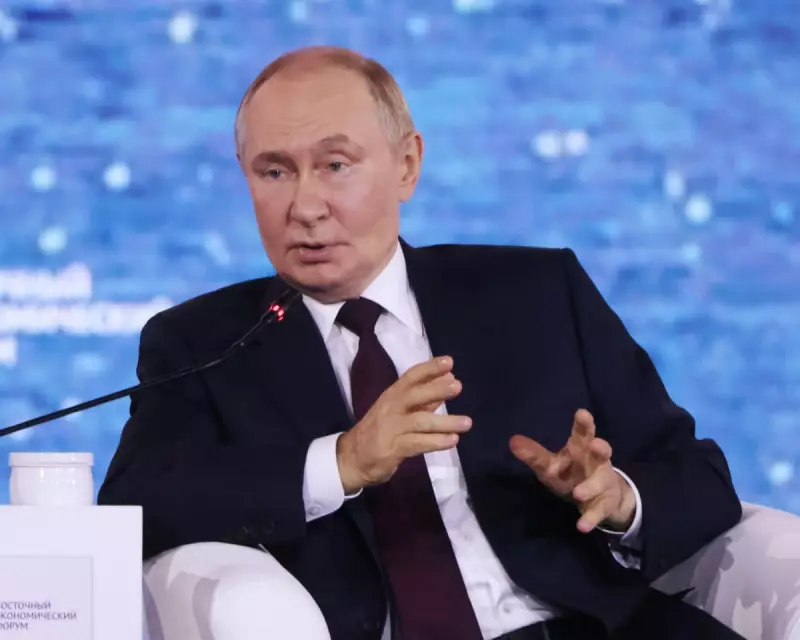
Russian President Vladimir Putin has issued a chilling declaration, stating that any Western military personnel operating inside Ukraine are now considered 'legitimate targets' for Russian forces. This stark warning represents a significant and dangerous escalation in rhetoric from the Kremlin.
The threat was delivered during a press conference at the Eastern Economic Forum in Vladivostok, where Putin was questioned about recent reports of US and NATO troops being active on Ukrainian soil. The Russian leader's comments suggest a deliberate shift in how Moscow intends to prosecute its war.
A Deliberate Escalation
Putin's statement was calculated and unambiguous. He framed the potential presence of foreign troops not as instructors or advisors, but as combatants fundamentally aligned against Russian interests. This linguistic framing provides the purported justification for targeting them.
'If they are there, apparently, they are not just sitting at a table in the headquarters in Kyiv,' Putin stated, implying a direct involvement in combat operations that would, in his view, nullify any protected status.
The Western Response and Denials
The remarks appear to be a direct response to recent investigations and media reports, including from outlets like Le Monde, which have detailed the covert presence of NATO military personnel in roles extending beyond mere advisory functions.
Western nations, including the United States, have consistently denied deploying combat troops to Ukraine. Official narratives maintain that support is limited to financial aid, intelligence sharing, and military equipment. Putin's latest provocation challenges these assertions head-on, daring Western powers to either confirm or deny the reports under the spectre of direct military engagement.
The Implications for NATO and Global Security
This new threat places NATO members in a precarious position. It creates a deliberate grey zone where Russia could justify an attack on foreign nationals, potentially triggering a severe international incident or even a broader confrontation.
The move is widely seen by analysts as a form of strategic intimidation, designed to deter deeper Western involvement and test the alliance's resolve. By publicly establishing these 'red lines', Putin is attempting to shape the boundaries of acceptable support for Ukraine through fear.
This development marks one of the most volatile moments in the conflict to date, raising the spectre of a direct clash between nuclear powers and fundamentally altering the risk calculus for any nation supporting Ukraine.





